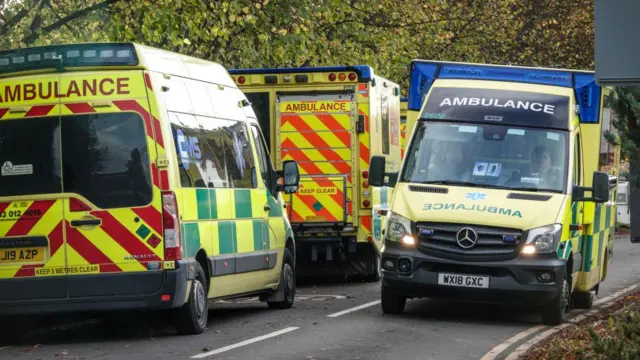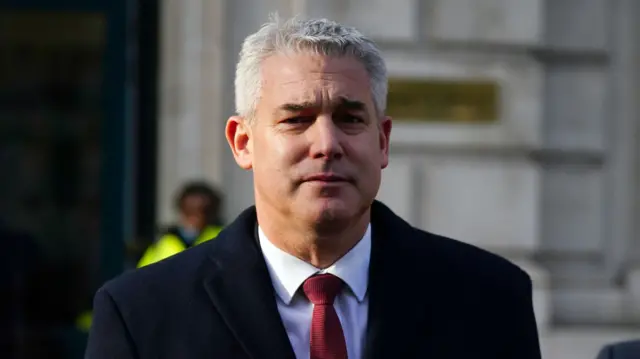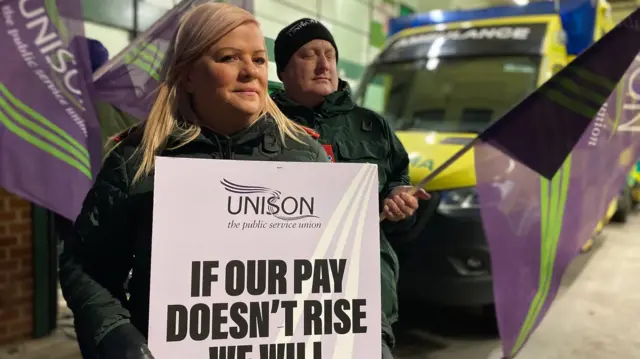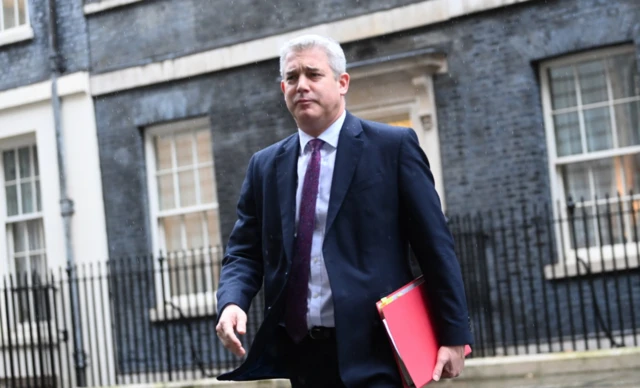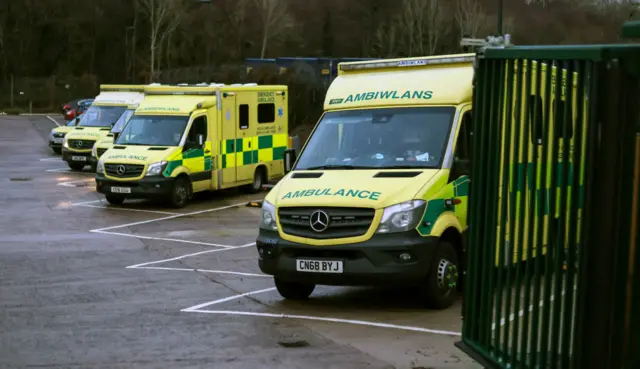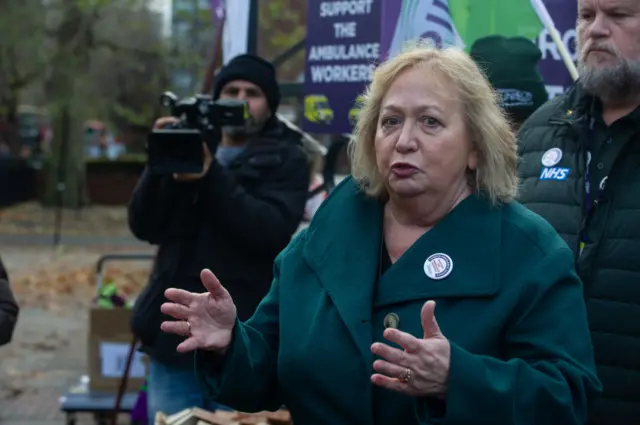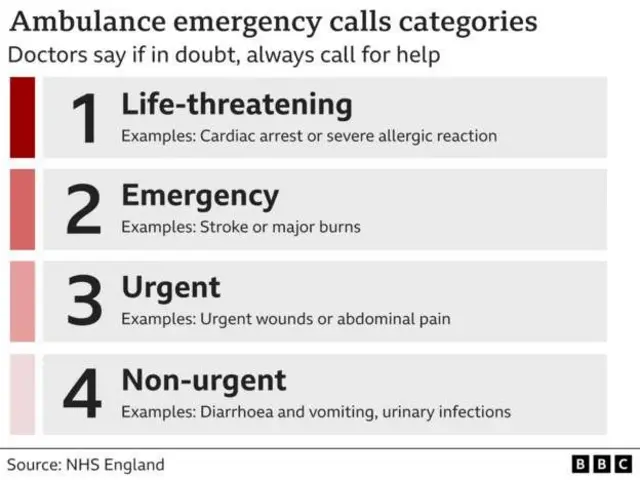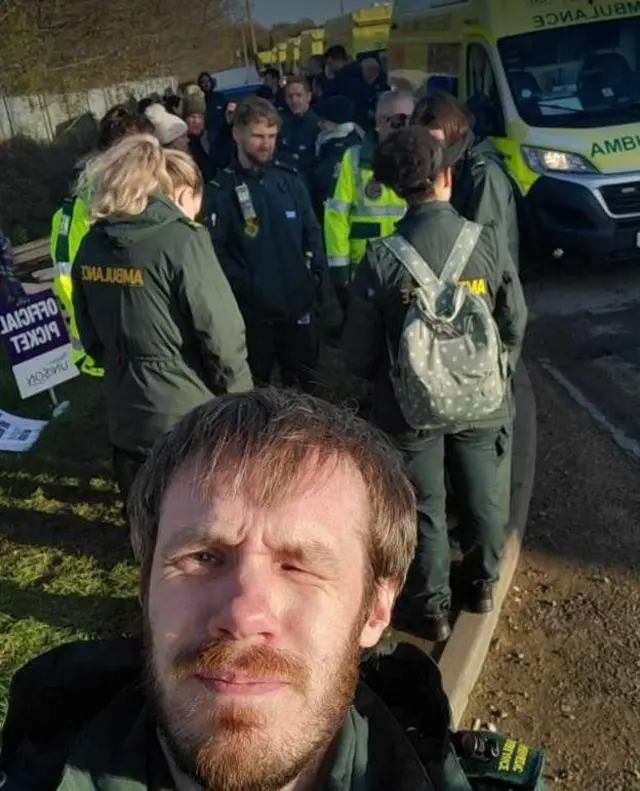Advice for the public during the strikespublished at 09:44 GMT 11 January 2023
 Michelle Roberts
Michelle Roberts
Health editor, BBC News online
In an emergency, people should call 999 for life-saving care. Ambulance crews will be responding to the most clinically urgent cases.
All category one calls - the most critical, such as cardiac arrest - will be responded to, while some ambulance trusts have agreed exemptions with unions for specific incidents within category two, which are serious but not immediately life-threatening conditions, such as stroke or chest pain.
Unless it is “life or limb”, an ambulance may not come or you may have to wait longer than usual for one. During a previous ambulance strike last month, hospitals advised pregnant women who are very close to their due date to make alternative plans for getting to the hospital, should they need to.
Call handlers - who are also striking today, but will still be working- will assess when and where ambulances should sent.
General practice staff, pharmacies, and dentists are not on strike and will run a normal service, although it may be busier than usual.
NHS 111 is also available to offer advice, external.
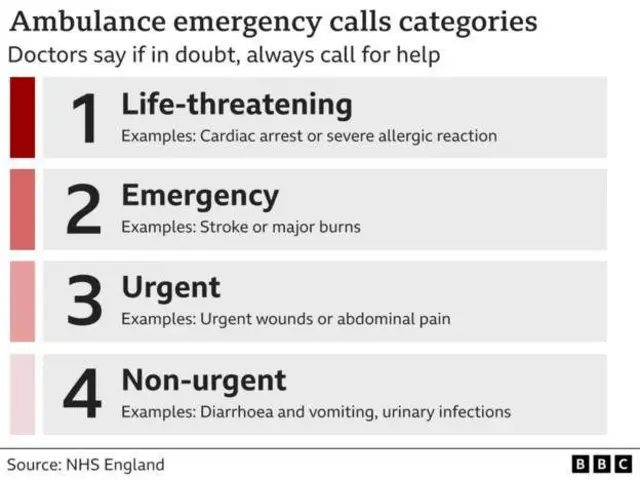 Image source, .
Image source, .


